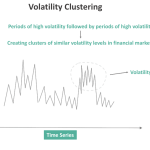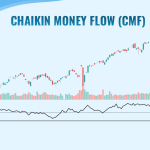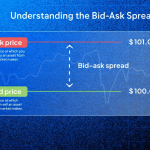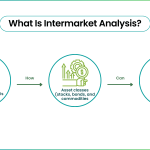
What is the FTSE Bursa Malaysia KLCI?
The FTSE Bursa Malaysia KLCI (Kuala Lumpur Composite Index) is the primary stock market index for Malaysia, representing the performance of the 30 largest companies by market capitalization on the Bursa Malaysia stock exchange. The index includes companies from various sectors, such as finance, telecommunications, plantations, and utilities. The FTSE Bursa Malaysia KLCI is a market-capitalization-weighted index, meaning the larger the company, the more impact its stock has on the overall index performance.
The KLCI is a joint effort between FTSE (Financial Times Stock Exchange) and Bursa Malaysia. It was introduced to provide a benchmark for investors to gauge the performance of Malaysia’s blue-chip stocks and the broader economy.
Why is the FTSE Bursa Malaysia KLCI Important?
- Barometer of Malaysia’s Economy: The KLCI serves as a key indicator of the Malaysian economy. The performance of the companies in this index, which come from a range of industries like banking, energy, and consumer goods, reflects the overall economic health and market trends in the country. A rising KLCI usually suggests economic growth, while a declining KLCI may indicate a slowdown.
- Attraction for Global Investors: As the benchmark index for Malaysia, the KLCI attracts both domestic and international investors. It is one of the primary tools foreign investors use to gauge Malaysia’s market potential and stability. This index is often tracked by global funds seeking exposure to Southeast Asia.
- Global Benchmark Recognition: Being a FTSE-branded index, the KLCI is recognized globally as part of the FTSE index family. This gives it international visibility and ensures that Malaysian companies are more easily included in global index-tracking funds and ETFs, thus providing a link to global capital flows.
- Foundation for Financial Products: The KLCI serves as the foundation for various investment products, including ETFs (exchange-traded funds), index funds, and derivative products like futures and options. These financial instruments make it easier for investors to gain exposure to the Malaysian market in a cost-effective and diversified manner.
Why Use the FTSE Bursa Malaysia KLCI?
- Diversified Exposure to Malaysia’s Largest Companies: The KLCI includes the top 30 companies in Malaysia, giving investors a broad and diversified exposure to some of the most prominent sectors of the Malaysian economy, such as banking, energy, telecommunications, and consumer products. Investing in a fund that tracks the KLCI provides a relatively low-risk way to gain access to Malaysia’s top companies.
- Ease of Access: By investing in ETFs or index funds that track the KLCI, investors can participate in the Malaysian market without needing to research and buy individual stocks. These funds replicate the performance of the index, making it easier to achieve broad market exposure with a single investment.
- Stable, Blue-Chip Focus: The companies in the KLCI are typically well-established blue-chip stocks with strong financials and large market capitalization. This gives the index a certain level of stability, which is attractive for conservative investors looking for steady, long-term growth in a relatively stable market environment.
- Liquidity: The companies in the KLCI are among the most liquid stocks on Bursa Malaysia, meaning they are frequently traded and easy to buy or sell. This liquidity is especially important for investors who may need to enter or exit positions quickly.
Should You Invest in the FTSE Bursa Malaysia KLCI?
Whether or not to invest in the FTSE Bursa Malaysia KLCI depends on your investment goals, risk tolerance, and view of the Malaysian economy. Here are some key factors to consider:
- Emerging Market Exposure: Malaysia is considered an emerging market, and investing in the KLCI gives you exposure to this category. Emerging markets tend to offer higher growth potential compared to developed markets, but they also come with higher risks, such as political instability, currency fluctuations, and economic volatility. The KLCI provides a relatively safer entry point to Malaysia due to its focus on large, stable companies.
- Strong Sector Representation: The KLCI has significant exposure to sectors like banking (e.g., Maybank, CIMB), telecommunications (e.g., Axiata, Maxis), and plantations (e.g., Sime Darby Plantation). If you believe in the growth of these sectors in Malaysia and the broader Southeast Asian region, investing in the KLCI may be a suitable choice. However, it’s also important to understand that sector concentration can introduce risks if any of these industries face downturns.
- Dividend Yields: Many companies within the KLCI, particularly those in the banking and telecommunications sectors, offer attractive dividend yields. This can make the KLCI a good option for income-seeking investors who want regular dividend payouts in addition to potential capital appreciation.
- Political and Economic Risks: While Malaysia has a relatively stable economy, it is not immune to political risks and external economic pressures. Changes in government policies, global trade dynamics, and commodity prices can all impact the performance of the companies in the KLCI. International investors should also consider currency risk, as fluctuations in the Malaysian ringgit (MYR) can affect returns.
- Long-Term Growth Potential: Malaysia’s strategic location in Southeast Asia, strong industrial base, and growing consumer market make it a promising country for long-term investment. The KLCI can provide investors with a way to tap into this growth potential while benefiting from the stability of established blue-chip companies.
Conclusion
The FTSE Bursa Malaysia KLCI is a vital benchmark for investors seeking exposure to Malaysia’s economy and its largest, most influential companies. It offers diversified sector exposure, liquidity, and access to one of Southeast Asia’s key emerging markets. For those looking for long-term growth potential with exposure to a stable yet dynamic economy, the KLCI provides a solid investment vehicle, particularly through ETFs or index funds.
As with any investment, it’s essential to assess your personal financial goals, risk tolerance, and time horizon before investing in the KLCI. The index is a good choice for both local and international investors who are confident in Malaysia’s long-term economic growth and are looking for broad exposure to the country’s corporate leaders. Always consider consulting a financial advisor to ensure the KLCI aligns with your broader investment strategy.






